14:31, 04/09/2023
Writer Hoang Phu Ngoc Tuong has passed away, but his writings remain with time, including works inspired by mountains.
A poem by Hoang Phu Ngoc Tuong when "Spring I return" the old forest is filled with memories of the green days of a patriotic Vietnamese: "This spring I return to A Sao / In the nostalgia of the dead forest / In the pungent memories of the chemical smell / The phoenix has flown away since then / My heart is filled with emotion as in a dream / I stand in the middle of the resurrected forest / Picking pine branches from the thousand rains and mountain winds / I return, mist and smoke in my hands".
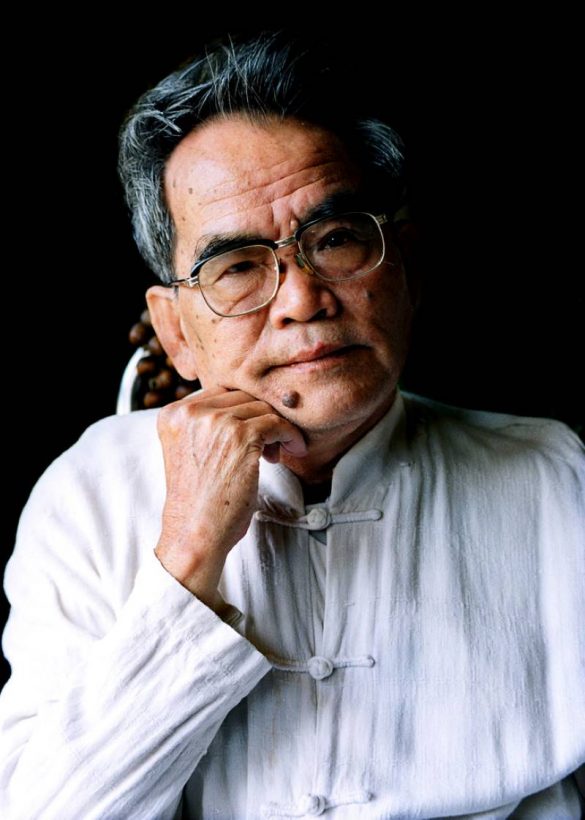 |
| Writer Hoang Phu Ngoc Tuong. Photo: Internet |
The poem “Last Night” is a nostalgic song about the mountains and forests from the mist of memories. It was just last night but it sounds like a distant memory, even though the image of the nine spirits appears, it still feels immense, lonely and sad, a deep, holy sadness that creates the poet's race. The steady tone of the poem rings like a bell praying for someone in life or comforting oneself with the sadness of loneliness: “You are gone, deep in Truong Son/In the past, I was still lonely often/Last night, I lay down, missing the rain source/The bird with the extinguished fire cried sadly for years/You are gone, wandering in the stream/I came back, hung a hammock and lay down, waiting for you/Yesterday, there was a group of orangutans/Wandering and laughing in the clouds”.
The old forest's sadness still appears like an inconsolable obsession that sometimes even when the dreamer returns, he can only sigh helplessly, leaving the poet to lie and wait for the dream with the faint hope of returning to the past. The poet's portrait is a portrait of the mood covered by a distant mist of temples and distant dreams.
This artist has subtly felt the pure, fresh beauty of the enlightenment season by distilling literature through the memoir “Spring changes clothes on the trees”. He has created another spring legend with the floating assumption of the poet: “I believe that, in the evolution of mankind, there are some values that are created at the same time as the human consciousness of life, right in the hearts of primitive ethnic groups living alone and never knowing how to communicate, for example, how to make fire, how to make the most primitive wine, and even the mystical concept belonging to the universe called Spring.
Humans have known the calendar since distant civilizations, but the idea of seasons has arisen from much deeper depths of time, through the life experiences of prehistoric people. So, following names like stone, water, fire, fruit, wild animals... maybe Spring was the first abstract word of primitive people, uttered by a poet to celebrate the phenomenon of the awakening of heaven and earth after long cold days of living in caves.
It was the grace of nature that stimulated the artist's curiosity and rich imagination to sprout the green of literature. The push of heaven and earth made the midwife give birth to a human work called art, the art of words and the art of a sensitive soul, of keen observation and perception: "One day, coming out of the dark winter in the forest, I was absorbed in looking at the forest filled with warm sunlight, listening to the singing of the stream that had become clear again, the birds calling each other "go ho go lang" on the hills of conical trees, and suddenly realized that around me, the first wild flowers of the season had painted bright colors on the ground.
Those were the days following my first resistance Tet in Khe Trai forest, and also the first time in my life, I wrote in my notebook my simple gratitude to some ancient sage who thought of this wonderful name for future generations, Spring.
In the memoir “Hong Dao Wine, Not Yet Sippin’”, readers are interested in a Quang Nam that is both familiar and strange. Starting from the name Quang Nam that was born in 1471 during the reign of Le Thanh Tong and the administrative title “Quang Nam Thừa Tuyên” meaning: “the land expands to the South, obeying the king’s orders to spread virtue”. Then the writer has a very different perspective: “From the top of the pass to the South, Truong Son points into rocky headlands next to each other, like a group of giants pushing out to the sea, playfully kicking the waves, the waves crashing on the rocky cliffs like the laughter of the endless game of mountains and sea”. And then a story about rocks appears again in the poetic masterpiece “Farewell to Hue” that Hoang Phu evaluates: “Saying goodbye to Hue on the top of Hai Van Pass, Thu Bon has a strangely sad poetic voice: Goodbye Hue with a silent kiss/I return to turn into stone on the other side”.
Hoang Phu is eternally inspired by the epic, remembering the wedding that opened the land "Hai Chau O, Ly, square, thousand miles..." of Princess Huyen Tran, to the theory of the sacred land and the talented people, of which the aloe vera plant that survives on Ngu Hanh Son mountain is a testament, recalling a famous saying of a foreign play character "To exist or not to exist". And then that journey of confiding touches the direction and lyrics of "Hon Vong Phu" by musician Le Thuong. And the conclusion resounds with great enthusiasm: "That's right, the Fatherland has given Quang Nam a seaport and a sword. Holding the sword passed down by their father, for six or seven hundred years standing guard at the strategic pirate site, the people of Quang Nam have never been lacking in the courage to protect the Fatherland. On every line of national history, that is what is affirmed".
His poetry is talented, mysterious, and vague like the mist of the mountains, while his writing is erudite, profound, and splendid like the majestic beauty of the mountains and forests. These unique features have made the name of writer Hoang Phu Ngoc Tuong.
Pham Xuan Dung
Source


![[Photo] Welcoming ceremony for Hungarian President Sulyok Tamas and his wife on an official visit to Vietnam](https://vphoto.vietnam.vn/thumb/1200x675/vietnam/resource/IMAGE/2025/5/28/7956bacf4a3e4bde8326cb8f72a3b26c)

![[Photo] National Assembly Chairman Tran Thanh Man meets with Hungarian President Sulyok Tamas](https://vphoto.vietnam.vn/thumb/1200x675/vietnam/resource/IMAGE/2025/5/28/1f182464bad54d399e1236943e0c13ba)
![[Photo] General Secretary To Lam receives Hungarian President Sulyok Tamas](https://vphoto.vietnam.vn/thumb/1200x675/vietnam/resource/IMAGE/2025/5/28/58cdfabf66514ef4bce5a13a285e6f6f)
![[Photo] President Luong Cuong holds talks with Hungarian President Sulyok Tamás](https://vphoto.vietnam.vn/thumb/1200x675/vietnam/resource/IMAGE/2025/5/28/0f603676be6444aa9f52d4bd32582b4d)
![[Photo] Close-up of the project connecting 3 key highways in the South](https://vphoto.vietnam.vn/thumb/1200x675/vietnam/resource/IMAGE/2025/5/28/c4b0bc977e964bb79d08b4e836974495)


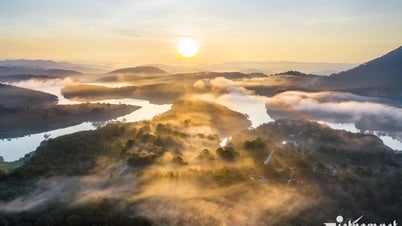








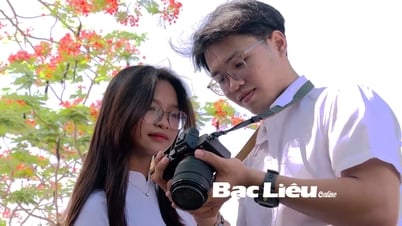




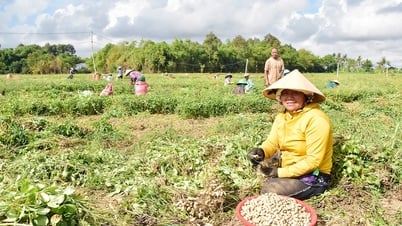
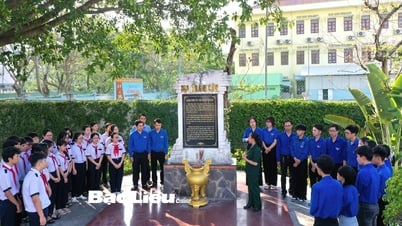







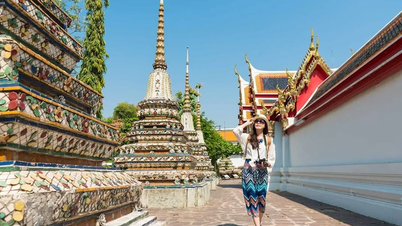


![[Photo] Hungarian President and his wife take a walk and enjoy the view of Hoan Kiem Lake](https://vphoto.vietnam.vn/thumb/1200x675/vietnam/resource/IMAGE/2025/5/28/b9c83fbe6d5849a4805f986af8d33f39)













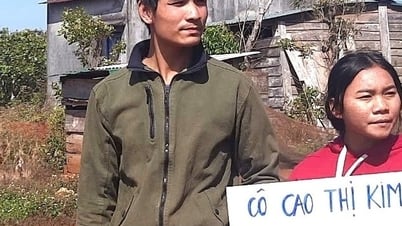























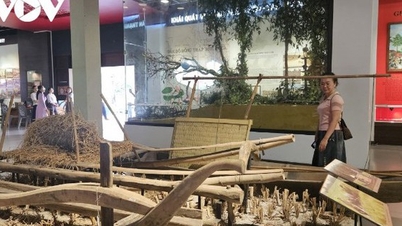




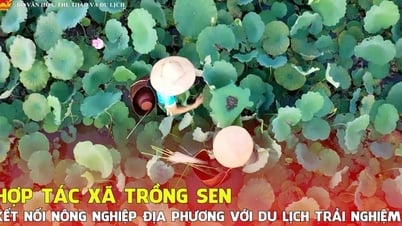






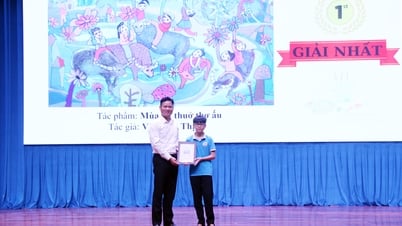

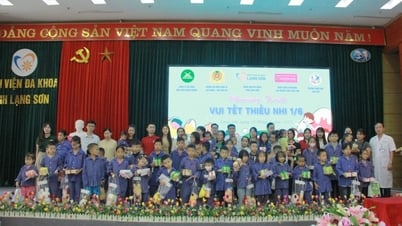










Comment (0)